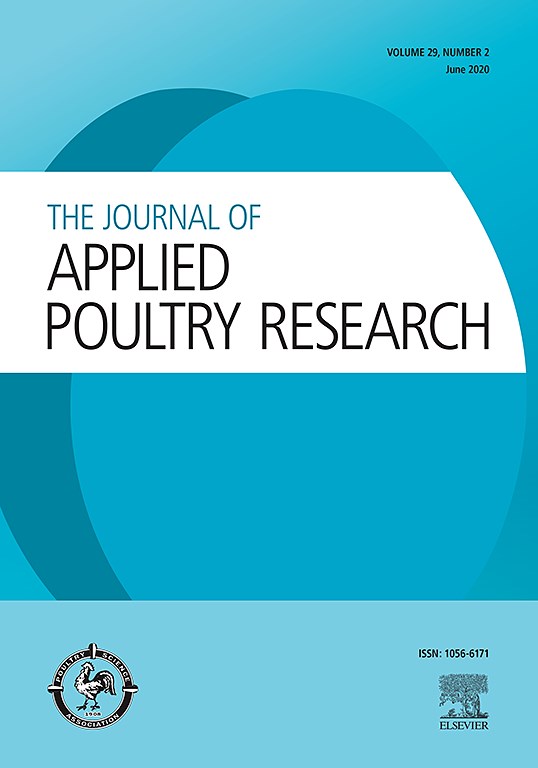Effect of mineral and vitamin C mix on growth performance and blood corticosterone concentrations in heat-stressed broilers
2020 J. Appl. Poult. Res. 29:23–33

Abstract
Heat stress is a major problem in the poultry industry, especially during summer months and when birds are raised under high-density conditions. Previous studies have reported that vitamin C or electrolyte supplementation could palliate the effects of heat stress in broiler chickens. The present study evaluated the effect of a mineral and vitamin mix (AHS) added to drinking water on the performance of broiler chickens. In total, 1,824 one-day-old birds were randomly allocated to 48 pens. Maximum animal density was 26.5 kg/m2. The control group received no additive; AHS-1 and -2 groups received the AHS mix at a concentration of 1 and 2 kg/1,000 L in drinking water, respectively; and the Vit-C group received vitamin C in drinking water at 200 g/1,000 L. All birds were fed the same diets based on a 3-phase feeding program; feed and water were given on ad libitum basis. To mimic heat stress conditions, temperature in the barn was raised to 35 C from 08:00 to 14:00 h each day. For the overall growing period (0 to 35 D), adding AHS to drinking water increased final BW, ADG, and ADFI linearly (PLinear < 0.05); FCR was decreased linearly with AHS supplementation (PLinear < 0.05). Final BW, ADG, and FCR for the Vit-C group were intermediate between AHS-2 and the control groups (P > 0.10). No significant effect on mortality were found (8.77%; P > 0.10). Relative to control, all the treatments tested reduced (P < 0.05) corticosterone concentration in blood serum. In conclusion, the combined use of supplementary levels of minerals and vitamins could alleviate the effects of heat stress on broilers chickens.